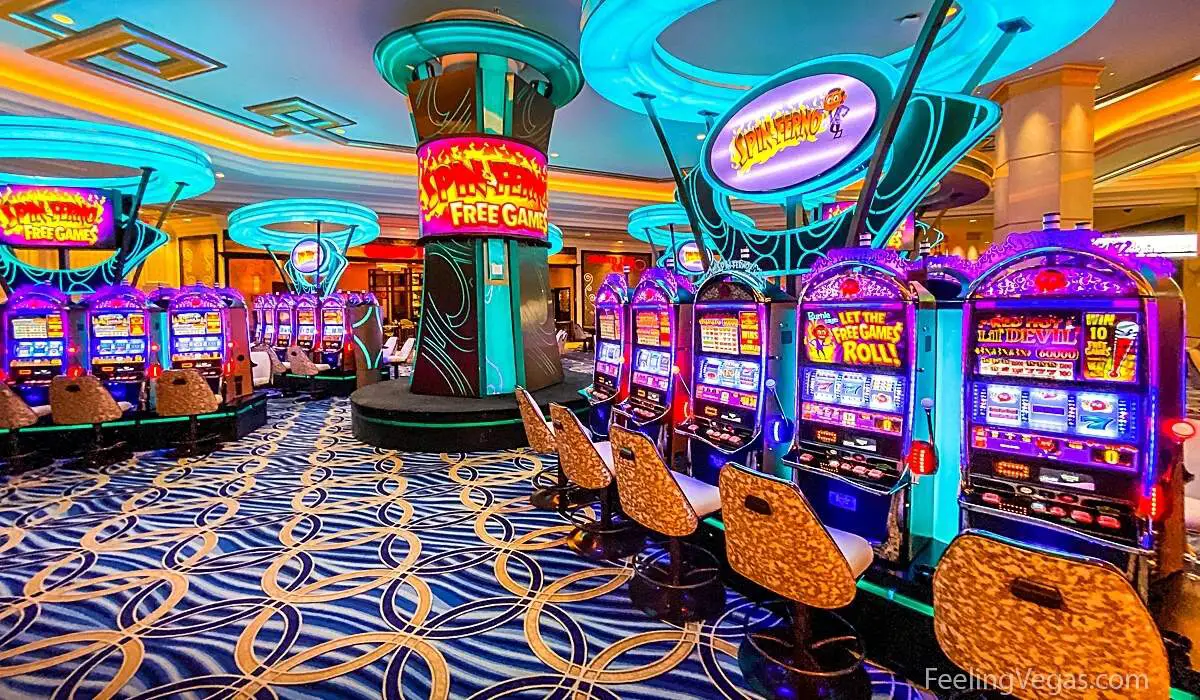
Gambling games have long been a engaging form of entertainment, drawing numerous of players from diverse cultures around the globe. From the opulent casinos of Vegas to the bustling gambling halls of the Chinese gambling capital, these games serve as a link that connects people across a variety of backgrounds. The allure of luck, tactics, and gambling entices not only those seeking to strike it rich but also those seeking a sense of community.
The cultural impact of casino games extends well beyond the gaming floor. They often embody the social norms and principles of the communities in which they prosper. Games such as poker, 21, and the spinning wheel have woven themselves into the fabric of mainstream culture, influencing multiple fields from films to clothing. As we explore this fascinating intersection of chance and life, we can comprehend better how these games shape and are affected by the world around us.
Chronological Evolution of Casino Activities
The origins of gambling activities can be tracked back to old cultures, where betting in multiple forms was widely engaged in. In Ancient China, around 2300 BC, a form of lottery known as Keno was common, while in old the Roman Empire, soldiers would often gamble on the consequences of their contests. The idea of using chance for entertainment and profit developed over the years, leading to the establishment of more organized games. By the end of the Middle Ages, gambling houses began to surface in Europe, notably in Italy, which brought forth early incarnations of well-liked games still enjoyed today.
As betting expanded fame in Europe, the 17th and 18th centuries saw the emergence of gambling establishments as exclusive locations for betting. The initial official casino, the Ridotto, was established in Venice in the year 1638, providing games like the game of Baccarat and the game Faro. This period marked a crucial pivoting point, as gaming venues began to welcome not just the wealthy but also the growing middle-income class. The refinement of activities increased, leading to the creation of new guidelines and variations that improved the experience of players.
In the 19th century, the industrial revolution and shifts in social standards further altered the environment of gaming games. The arrival of roulette and modern one-armed bandits pulled in a more diverse clientele, and gaming houses became seen as legitimate forms of entertainment. This era witnessed the international spread of gambling, as gambling houses expanded from Europe to the Western Hemisphere, culminating in the creation of the famous Las Vegas Strip in the twentieth century. The evolution of gaming games has progressed into the modern era, incorporating modern technology and digital platforms, rendering them open to a global market.
## Cultural Relevance in Different Cultures
Gambling games have significant cultural importance in numerous communities around the globe. For instance, in Las Vegas, the very core of the urban landscape is woven around casinos, where gambling is not just a pastime but a fundamental aspect of leisure and community life. non GamStop The dazzling lights and lively atmosphere attract countless individuals, showcasing how games of chance can shape local financial landscapes and local cultures. This environment transforms the notion of recreation into an engaging event that shapes fashion, music, and even cinema.
On the other hand, some cultures view wagering with greater care, considering it through the lens of ethical considerations and heritage. For instance, in various Oriental societies, games like Mahjongg and Pai Gow Poker are steeped in history and have significant social implications. These games are often played during meetings and occasions, fostering social ties and solidifying kinship ties. The act of engaging in these games goes beyond mere entertainment, reflecting principles such as deference to seniors and the importance of communal fun.
At the same time, in European countries such as Monte Carlo and Rome, casino games serve as symbols of luxury and sophistication. The stylish atmosphere of these establishments attracts both tourists and locals, upholding a sense of prestige and exclusivity. The art of poker and the strategic features of games like the game of baccarat are esteemed, molding social dynamics and cultivating an allure that captivates a heterogeneous audience. This emphasizes how games of chance can simultaneously echo and shape cultural perspectives towards risk, gain, and community interaction.
Economic Impact and Tourism
Casino games play a significant role in the financial context of many regions, particularly those that rely heavily on tourism. The revenue generated from casino operations fuels local economies, creating employment opportunities not only within the casinos themselves but also in connected industries such as hotel management, restaurant services, and entertainment. This surge of tourists, drawn by the attraction of gambling and the overall gaming environment, stimulates spending across multiple businesses, contributing to the economic health of the area.
The existence of casinos often leads to the development of facilities, including hotels, public transit, and recreational facilities. These developments are essential in enhancing the overall tourist experience, making locations more appealing to tourists. Additionally, many casinos invest in local communities through sponsorship of events and charitable initiatives, further embedding themselves into the community structure of the locality. Such investment not only supports economic growth but also fosters a positive image of the casino industry.
Moreover, the global popularity of casino games drives competitive tourism, with regions vying to attract players from across the globe. Iconic destinations like Las Vegas and Macau have become identifiable with casino culture, drawing millions each year. This competitive edge encourages innovation and variety within the gaming industry, influencing developments in entertainment and hospitality that resonate beyond their limits. The consequences of this tourism extend wide, impacting local financial health and cultural interactions on a worldwide scale.